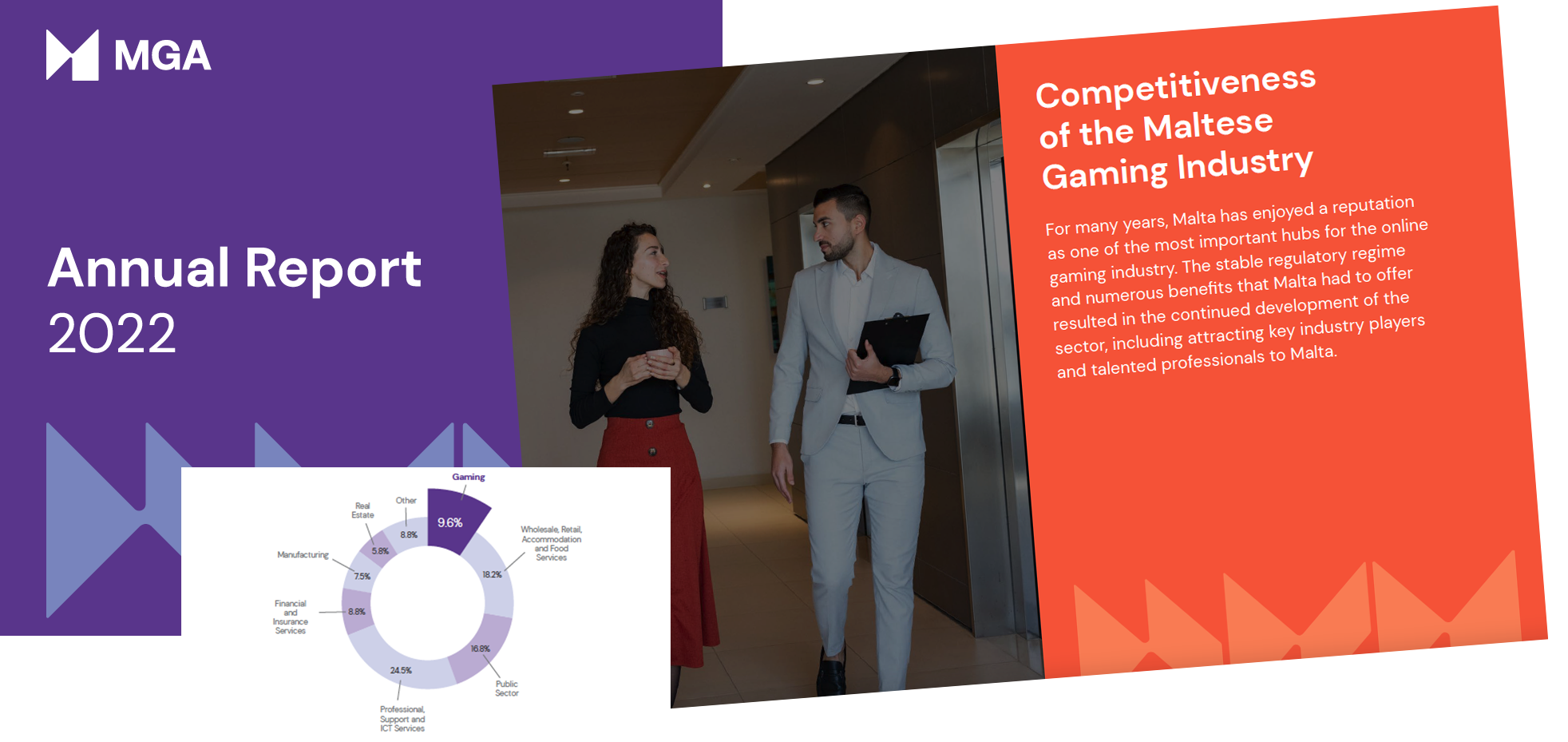
The Malta Gaming Authority (MGA) Annual Report for 2022 was published in early June, and the main findings describe continued steady growth, sustaining the industry’s contribution to Malta’s economy, despite geopolitical tensions limiting post-COVID recovery, and increased regulatory pressures against MGA license holders in several EU jurisdictions, which were addressed in the recent amendments to the Gaming Act.
These amendments, in the form of Bill 55, protect the status of the Maltese gaming licence from “unfounded challenges” from foreign court judgements, and allows the Maltese courts to refuse recognition and enforcement of such judgements related to the Malta online gaming sector.
This intensification of regulatory developments “… impacted the industry’s overall activity in Malta, but the growth in the value added to the sector progressed at a steady pace. The total Gross Value Added (GVA) generated by the gaming industry during 2022 stood at €1,495 million, representing around 9.6% of the economy’s GVA,” reported the MGA. And when factoring in indirect effects, this increased to 12.4%.
This translates into a value growth of 5.8% compared to 2021, and by December 2022 11,245 people were employed in MGA-licensed businesses, 92.2% in the online gaming sector. When adding employment generated in associated industries, this number grows to 15,744, which is 5.5% of the total Maltese workforce.
Malta is widely acknowledged as a major hub for online gaming operators, hosting some of the biggest names in the business. When surveyed by the MGA for the report, 65% of these operators expressed expectations of increased revenue in 2023, rising to 74% for 2024, with circa 60% expecting to increase recruitment during the same period.
But expectations of increased costs were also reported, including legal and professional expenses and marketing costs, due largely to increased regulatory and compliance requirements resulting from the wave of national regulation coming into force. This is impacting B2C casino and sportsbook operators in particular, due to the lack of harmonisation in the gaming regulatory landscape limiting access to markets.
Malta continued attracting new entrants to the local market, with 41 gaming licence applications submitted during the year, and 31 licences issued. The services of the B2B licensees are increasingly sought after by Maltese B2C operators and foreign-regulated operators alike, conscious of the safeguards brought about by the Maltese licence.
The coming changes to the international corporate tax framework were also discussed, with a global minimum tax rate being introduced in 2024, which for larger companies is set at 15%. However, this is not expected to lead to a large-scale flight of iGaming companies from Malta, as this tax reform is being applied globally, although “…the MGA has intensified its efforts, together with other national stakeholders, to ensure that a sustainable strategy for the gaming sector is in place to mitigate any potential difficulties and ultimately safeguard Malta’s competitiveness as a jurisdiction.”
In the last quarter of 2022, the MGA kickstarted a process for implementing a voluntary ESG Code of Good Practice for the industry. This involves consultation with industry professionals to set the common priorities for ESG in gaming, identify best practices in the area, and allow good ESG performance to be recognised, and the first draft of the proposal is now out for consultation with iGEN members and other key stakeholders.
A focus on Responsible Gambling remains at the core of the MGAs objectives, resulting in 85 desktop reviews of MGA licensees’ B2C websites over the year, to ensure that responsible gambling functionalities, including limits, exclusions and reality checks, are available on these sites and are in line with the Player Protection Directive.